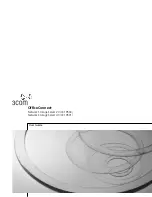
S
EAGATE
E
NTERPRISE
P
ERFORMANCE
15K HDD
AND
E
NTERPRISE
T
URBO
SSHD SAS P
RODUCT
M
ANUAL
, R
EV
. B
3
2.0 Applicable standards and reference documentation
The drives documented in this manual have been developed as system peripherals to the highest standards of design and construct ion.
The drives depend on host equipment to provide adequate power and environment for optimum performance and compliance with
applicable industry and governmental regulations. Special attention must be given in the areas of safety, power distribution, shielding,
audible noise control, and temperature regulation. In particular, the drives must be securely mounted to guarantee the specified
performance characteristics. Mounting by bottom holes must meet the requirements of Section 10.3
2.1
Standards
Enterprise Performance 15K HDD and Enterprise Turbo SSHD drives complies with Seagate standards as noted in the appropriate
sections of this manual and the Seagate
SAS Interface Manual
, part number 100293071.
The drives are recognized in accordance with UL 60950-1 as tested by UL, CSA 60950-1 as tested by CSA, and EN60950-1 as tested by
TUV.
The security features of Self-Encrypting Drive models are based on the “TCG Storage Architecture Core Specification” and the “TCG
Storage Workgroup Security Subsystem Class: Enterprise_A” specification with additional vendor-unique features as noted in this product
manual.
2.1.1
Electromagnetic compatibility
The drive, as delivered, is designed for system integration and installation into a suitable enclosure prior to use. The drive is supplied as a
subassembly and is not subject to Subpart B of Part 15 of the FCC Rules and Regulations nor the Radio Interference Regulations of the
Canadian Department of Communications.
The design characteristics of the drive serve to minimize radiation when installed in an enclosure that provides reasonable shi elding. The
drive is capable of meeting the Class B limi ts of the FCC Rules and Regulations of the Canadian Department of Communications when
properly packaged; however, it is the user’s responsibility to assure that the drive meets the appropriate EMI requirements in their system.
Shielded I/O cables may be required if the enclosure does not provide adequate shielding. If the I/O cables are external to the enclosure,
shielded cables should be used, with the shields grounded to the enclosure and to the host controller.
2.1.1.1
Electromagnetic susceptibility
As a component assembly, the drive is not required to meet an y susceptibility performance requirements. It is the responsibilit y of those
integrating the drive within their systems to perform those tests required and design their system to ensure that equipment operating in the
same system as the drive or external to the system does not adversely affect the performance of the drive. See Section 6.3, DC power
requirements.
2.1.2
Electromagnetic compliance
Seagate uses an independent laboratory to confirm compliance with the directives/standards for CE Marking and C-Tick Marking. The
drive was tested in a representative system for typical applications and comply with the Electromagnetic Interference/Electromagnetic
Susceptibility (EMI/EMS) for Class B products. The selected system represents the most popular characteristics for test platforms. The
system configurations include:
• Typical current use microprocessor
• Keyboard
• Monitor/display
• Printer
• Mouse
Although the test system with this Seagate model complies with the directives/standards, we cannot guarantee that all systems will comply.
The computer manufacturer or system integrator shall confirm EMC compliance and provide the appropriate marking for their product.
Electromagnetic compliance for the European Union
If this model has the CE Marking it complies with the European Union requirements of the Electromagnetic Compatibility Directiv e 2004/
108/EC as put into place on 20 July 2007.
Australian C-Tick
If this model has the C-Tick Marking it complies with the Australia/New Zealand Standard AS/NZ CISPR22 and meets the Electromagnetic
Compatibility (EMC) Framework requirements of Australia’s Spectrum Management Agency (SMA).
Korean KCC
If these drives have the Korean Communications Commission (KCC) logo, they comply with KN22, KN 24, and KN61000.










































